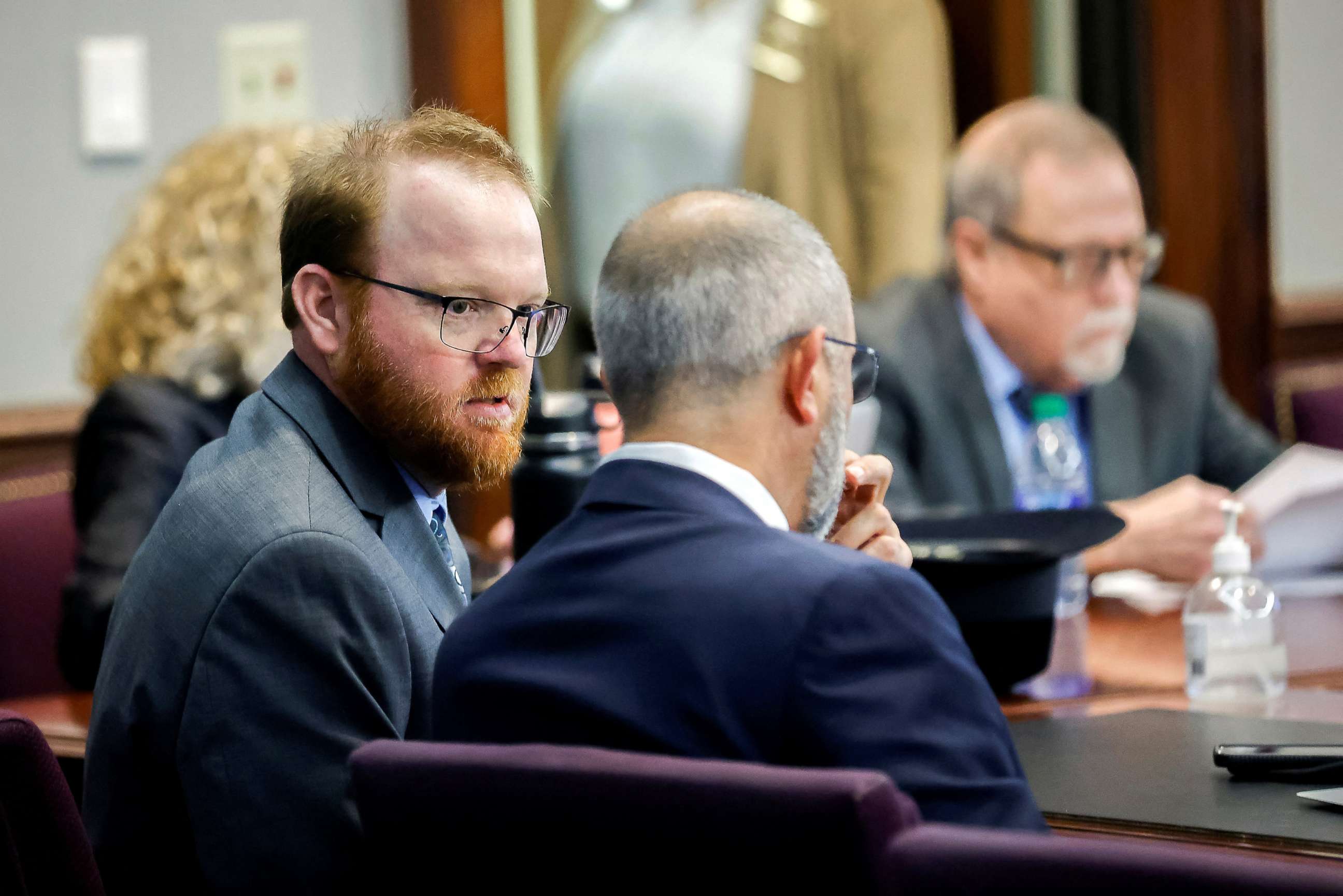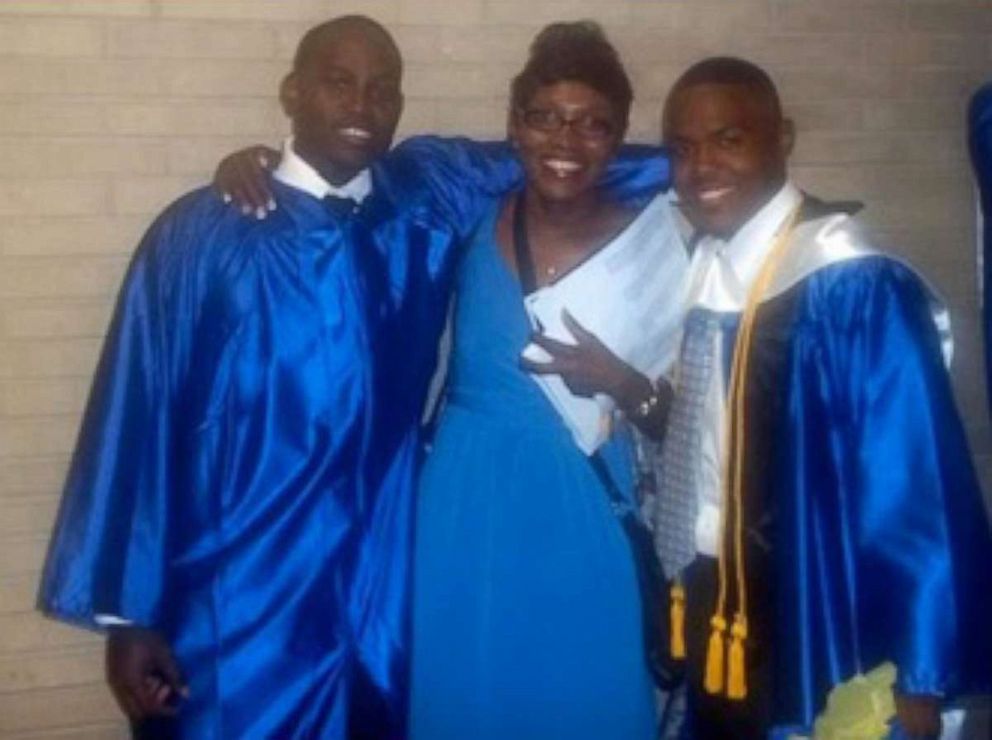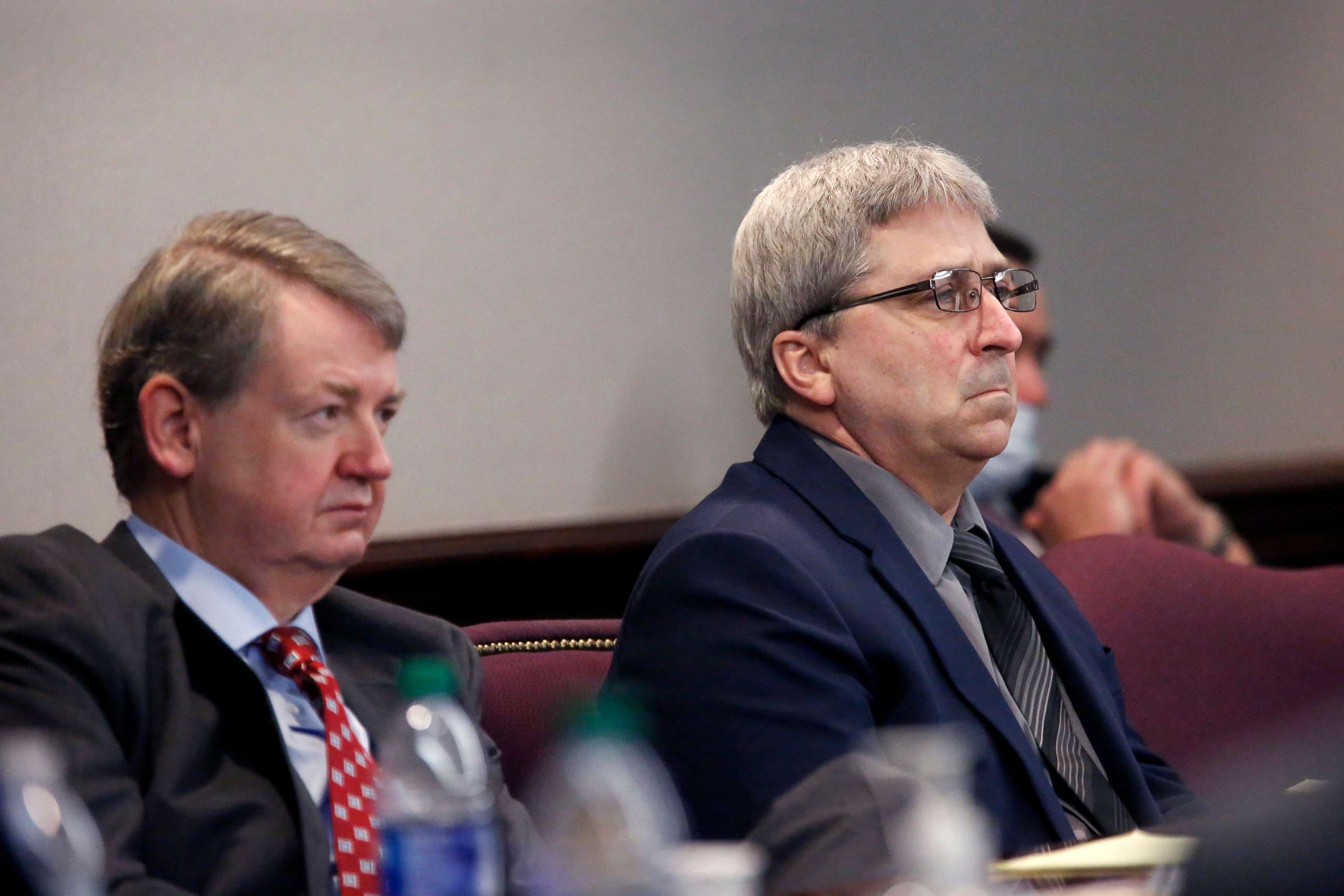What's next for Ahmaud Arbery's killers after judge rejects plea deal: Experts
Travis and Gregory McMichael's plea deal was turned down this week.
Despite a judge rejecting their plea agreement in an unusual move, Gregory and Travis McMichael could still admit guilt to federal hate crime charges stemming from the murder of Ahmaud Arbery, according to legal experts.
Already sentenced to life in prison without the possibility of parole in their state murder case, the father and son have the option of making what is called an open plea in the federal case, leaving it up to U.S. District Court Judge Lisa Godbey Wood to determine the sentence they will receive, experts said.
They also could work on another plea deal or take their chances at trial, but will likely wind up spending life behind bars either way -- it's just a matter of where they'll do time. And experts say it's unclear what the point of a federal trial would be at this juncture, since the McMichaels essentially admitted to hate crimes in the rejected plea deal, the experts contend.
Wood has given Gregory McMichael, 66, a retired Georgia police officer, and his 36-year-old son until Friday to decide whether to withdraw the guilty pleas they signed under the agreement with federal prosecutors she rejected on Monday. If they did, they would go to trial along with co-defendant William "Roddie" Bryan next week.

Under the now-defunct plea deal, the McMichaels were assured by federal prosecutors that they would spend the first 30 years of confinement in a federal penitentiary, a guarantee that was vehemently opposed by Arbery's mother and father during Monday's court hearing. Wood sided with the parents, saying she was "uncomfortable" with the agreement because it locked her into the three-decade sentence.
“The length of the sentence is immaterial to the McMichaels. All they care about is they want to serve it in a federal prison," said Dan Abrams, ABC News' chief legal analyst, adding that federal prisons tend to be nicer, safer and better funded than state prisons.
"While the judge is claiming that the issue for her was her hands being tied with regard to the length of the sentence, that’s probably not the real issue," Abrams said. "The real issue was that the family was opposed to it and the judge was sort of coming up with an explanation for why she would join them in opposing."
Open plea or new deal
Former federal prosecutor David Weinstein told ABC News that if the McMichaels opt for an open plea, there is no guarantee that Wood would immediately grant their wish and send them to federal prison. If they go on trial and are convicted, they could still be sent to state prison to serve life without parole, making any sentence Wood imposes moot unless the defendants get their state convictions overturned on appeal.
Wood would likely end up making the decision on where to send the McMichaels during sentencing if they go for an open plea or are convicted at trial.
Both of the McMichaels have no criminal history, a factor judges generally weigh in deciding punishment.
Weinstein, a partner in Florida law firm Hinshaw & Culbertson, said another option for the McMichaels would be to work with federal prosecutors and the Arbery family to develop another plea agreement that would remove the guaranteed 30-year sentence.
At Monday's hearing, Assistant U.S. Attorney Tara Lyons said Travis and Gregory McMichael agreed to plead guilty to count one of a multi-count indictment alleging they interfered with Arbery's right to enjoy the use a public road he was jogging on "because of Arbery's race and color." Lyons said the agreement called for other charges to be dismissed, including attempted kidnapping and discharging a firearm during a violent crime.
Prior to Monday's hearing, Arbery's relatives slammed the plea deal, alleging it was done behind their backs. But Assistant U.S. Attorney General Kristen Clarke said her office was in frequent communication with attorneys for Arbery's family and that they assured prosecutors the family would not oppose the plea arrangements.
Arbery, 25, was fatally shot on Feb. 23, 2020, after the McMichaels saw him jogging in their Satilla Shores neighborhood near Brunswick, Georgia, assumed he was a burglar, armed themselves and chased him in their pickup truck. The McMichaels' neighbor, Bryan, joined the pursuit, blocking the victim's escape path with his truck.
Bryan also used his cellphone to record Travis McMichael fatally shooting Arbery with a shotgun, video that became integral to their state murder convictions.

All three men were convicted of murder by a state jury in November and sentenced to life in prison, Travis and Gregory McMichael without the possibility of parole.
At the time of Arbery's slaying, Georgia did not have a hate crime law, leaving it up to the Department of Justice to pursue the federal hate crimes indictment, which was handed down by a grand jury last February.
Weinstein said he was initially surprised by Wood's decision to reject the federal plea deal until he heard her explain the reason behind it.
"On cases where you are specifically telling a judge this is what we’re agreeing to and you’re tying their hands, those are the cases where you most often see them rejected. So, that’s what was happening here," Weinstein said.
During Monday's hearing, Arbery's parents, Wanda Cooper-Jones and Marcus Arbery, made impassioned pleas for Wood to reject the plea agreement, asking her not to grant the men responsible for their son's murder their preferred conditions of confinement in federal prison.
"It is not fair to take away this victory that I prayed and I fought for," Cooper-Jones told the judge. "It is not right. It is not just. It is wrong. Please listen to me. Granting these men their preferred conditions of confinement would defeat me. It gives them one last chance to spit in my face after murdering my son."

'What's the purpose' of federal trial?
Neama Rahmani, a former federal prosecutor and co-founder of the West Coast Trial Lawyers law firm in Los Angeles, questioned the rationale of the feds moving forward with the case given life-without-parole sentences the McMichaels are already serving in Georgia.
"The question really is why are we doing this, what's the purpose?" Rahmani told ABC News, adding that the McMichaels guilty pleas would have also required them to essentially waive their rights to an appeal both in the federal and state cases.
"I know why we're doing it is because at the time there was no hate crime law in Georgia. But now that they've been convicted, what's really the purpose of a federal trial?" Rahmani said. "What's the end game? They're likely going to die in prison whether it's state or federal prison."
Lara Yeretsian, a veteran Los Angeles criminal defense attorney, questioned why the Arbery family objected to the plea deal.
“At this point, the family of Ahmaud Arbery is getting something that they didn’t have in the state case -- a confession basically that yes this was a hate crime. I thought that’s why they wanted the federal case," Yeretsian said. "I’m not saying they are going to be acquitted in the federal case, but there’s always a possibility of an acquittal or a hung jury. And then you’ve wasted taxpayers' money on a case where the defendants were willing to enter guilty pleas."
Yeretsian said that if the McMichaels, who have been appointed federal public defenders due to financial hardship, choose to enter open guilty pleas, the judge will have no choice but to accept them.
“A defendant has the right to go to trial or to admit guilt. Who can stop you?" Yeretsian said. "Yes, the judge can say, 'I will not accept this plea bargain or this deal,' but she can’t say, 'I’m going to reject a guilty plea, an open plea.' They have the right to confess."



